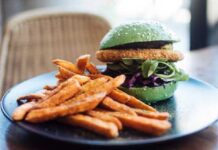
Are you a power napper? It’s okay to admit you’re down for a daily or occasional siesta. I’ve been a cult napper from infancy to adulthood. I’m all about self-care and that includes rest and relaxation. After all, lack of sleep can seriously mess with your life (and health).
A study at NASA conducted on military pilots and astronauts discovered that a 40-minute nap improved performance by 34% and attention by 100%. It’s also important to note there is a sweet spot when it comes to napping because if you snooze for too long, you might wake up feeling groggy. The National Sleep Foundation recommends a 20-30 minute nap to boost short-term alertness. So turn off the TV and step away from the screens. The perfect nap awaits. Ahead, find some interesting health benefits linked to napping. Plus, there are a lot of products to try for better sleep.
It Boosts Your Mood
If you’ve encountered a cranky toddler, chances are they skipped naptime and are over-tired. Trust me, I’ve been there (though these days I have trouble getting my 13 year-old out of bed). The same can be said about adults who are overdue for a snooze, or missed out on a full night of REM sleep. “Naps reduce attention to emotional stimuli during early childhood. Without a mid-day nap, a child’s attention to emotional stimuli is heightened and may impair their ability to regulate emotions. This is also seen in adults,” says Dr. Jacob Teitelbaum, MD, author of From Fatigued to Fantastic! Research links naps to improved emotional regulation. Dr. Teitelbaum, who specializes in chronic fatigue syndrome among other areas, explains emotional regulation is the ability to control our emotional state. “For example, by rethinking a challenging situation, or focusing on reasons to feel happy, or calm.”
It Revs Your Sex Life
A study conducted at the University of Michigan Medical School found the longer individuals slept, the more interested in sex they were. A one‐hour increase in sleep length corresponded to a 14% increase in odds of engaging in partnered sexual activity. “Sleep and libido are closely related,” Dr. Teitelbaum says. “A key sexual hormone called oxytocin is increased during sleep—this hormone increases the ability to orgasm and helps with sensuality, encouraging libido.”
It Curbs Cravings
According to a Stanford study, a lack of sleep can lead ghrelin (the hunger hormone) to increase, and leptin (a hormone released from fat cells that regulates appetite) to decrease. “The research shows inadequate sleep is associated with an average six-and-a-half pound weight gain and 30% higher risk of obesity,” says Dr. Teitelbaum. “The mechanism for this includes changes in the appetite hormones, but is also related to deep sleep, associated with increased growth hormone production.” He explains that growth hormone decreases fat and increases muscle. However, research suggests a quick 20- to 30-minute nap can lend a hand in restoring the natural balance of ghrelin and leptin, which means less midnight snacking.
It Relaxes You
If you’ve ever found yourself staring at the ceiling and counting sheep to no avail, you may have experienced anxiety the following day. In fact, a University of California Berkley study found a lack of sleep is common in anxiety disorders. When you don’t get a good night’s rest, your brain can go into overdrive, causing excessive worrying. While naps are not a cure for anxiety, they can calm your brain down temporarily, so you can reset. “Interestingly, your brain will work more clearly immediately after a 10-minute nap, as opposed to a 30-minute nap,” Dr. Teitelbaum says. “Extended sleep results in “sleep inertia,” which takes longer for the mind to wake up sharp. If your mind is not functioning optimally, you are also more prone to feeling anxious and frustrated.” (Napping will not cure anxiety. Contact your physician if you’re experiencing disruptive symptoms associated with anxiety.)
It’s Good For Your Heart
A recent study by the Clevland Clinic found individuals who napped two or three times a week had improved cardiovascular events, compared to those who weren’t napping, or napping more frequently. But there’s a catch: Researchers determined people who took power naps for 15 to 20 minutes had a decrease in their risk of suffering a heart-related event. “Short naps of up to 30 minutes a day decreases the risk of diabetes, while naps over an hour a day make it harder for your body to regulate insulin,” says Dr.Teitelbaum. From sex to saunas, read about other ways to keep your heart healthy.
It Increases Creativity
Good news for creatives: A short nap can elevate activity in the brain’s right hemisphere—that’s the area of the brain that governs creativity and insight. Napping also fosters greater cross-communication between your brain’s right and left hemispheres—encouraging cross-talk between your creative brain and your analytical brain. Dr. Teitelbaum adds, “Naps disconnect us from our logical mind and can facilitate creativity.” Plus, according to SleepFoundation.org, napping can uplift your energy level upon waking, so you can attack the next project in your life, be it a work deadline or cooking dinner.
Important Notice: This article was originally published at www.byrdie.com by Christine Coppa where all credits are due. Medically reviewed by Nicole Swiner, MD.
Disclaimer
The watching, interacting, and participation of any kind with anything on this page does not constitute or initiate a doctor-patient relationship with Dr. Farrah®. None of the statements here have been evaluated by the Food and Drug Administration (FDA). The products of Dr. Farrah® are not intended to diagnose, treat, cure, or prevent any disease. The information being provided should only be considered for education and entertainment purposes only. If you feel that anything you see or hear may be of value to you on this page or on any other medium of any kind associated with, showing, or quoting anything relating to Dr. Farrah® in any way at any time, you are encouraged to and agree to consult with a licensed healthcare professional in your area to discuss it. If you feel that you’re having a healthcare emergency, seek medical attention immediately. The views expressed here are simply either the views and opinions of Dr. Farrah® or others appearing and are protected under the first amendment.
Dr. Farrah® is a highly experienced Licensed Medical Doctor certified in evidence-based clinical nutrition, not some enthusiast, formulator, or medium promoting the wild and unrestrained use of nutrition products for health issues without clinical experience and scientific evidence of therapeutic benefit. Dr. Farrah® has personally and keenly studied everything she recommends, and more importantly, she’s closely observed the reactions and results in a clinical setting countless times over the course of her career involving the treatment of over 150,000 patients.
Dr. Farrah® promotes evidence-based natural approaches to health, which means integrating her individual scientific and clinical expertise with the best available external clinical evidence from systematic research. By individual clinical expertise, I refer to the proficiency and judgment that individual clinicians acquire through clinical experience and clinical practice.
Dr. Farrah® does not make any representation or warranties with respect to the accuracy, applicability, fitness, or completeness of any multimedia content provided. Dr. Farrah® does not warrant the performance, effectiveness, or applicability of any sites listed, linked, or referenced to, in, or by any multimedia content.
To be clear, the multimedia content is not intended to be a substitute for professional medical advice, diagnosis, or treatment. Always seek the advice of your physician or other qualified health providers with any questions you may have regarding a medical condition. Never disregard professional medical advice or delay in seeking it because of something you have read or seen in any website, video, image, or media of any kind. Dr. Farrah® hereby disclaims any and all liability to any party for any direct, indirect, implied, punitive, special, incidental, or other consequential damages arising directly or indirectly from any use of the content, which is provided as is, and without warranties.








